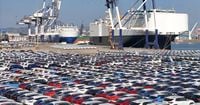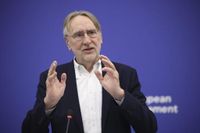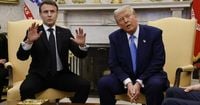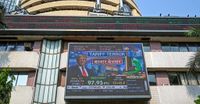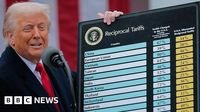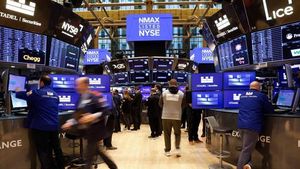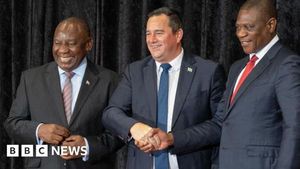On April 2, 2025, U.S. President Donald Trump announced sweeping new tariffs on imports from nearly every nation, a move he dubbed "Liberation Day." Originally scheduled for April 1, Trump delayed the announcement by a day to avoid it being dismissed as an April Fool’s joke. "Nobody would believe what I said," he explained during a press conference on March 21. The tariffs, which start at a minimum of 10% and can go as high as 50% for certain countries, have already begun to send shockwaves through the global economy.
As expected, reactions from world leaders have been swift and varied. Australian Prime Minister Anthony Albanese criticized the tariffs as lacking any logical basis, stating, "This is not the act of a friend." He emphasized that Australia would not retaliate with its own tariffs, despite the implications of Trump’s decision.
Brazil, facing a 10% tariff, has passed a reciprocity bill that allows it to retaliate against any country imposing tariffs on Brazilian goods. President Luiz Inácio Lula da Silva has indicated that Brazil may appeal to the World Trade Organization (WTO) regarding the tariffs, claiming they violate U.S. commitments to international trade agreements. "The new measure... will impact all Brazilian exports of goods to the United States," Brazil’s Foreign Ministry stated.
In Cambodia, the Minister of Labour and Vocational Training, Heng Sour, noted the country was hit with a staggering 49% tariff but expressed confidence in managing the consequences. He remarked that the tariff increase is not politically motivated, suggesting that the impact on Cambodia's production costs would be similar to those faced by other countries with high tariff rates.
China has been particularly vocal in its condemnation of the new tariffs, which include a 34% reciprocal tariff on top of a previous 20% tariff. The Chinese Ministry of Commerce stated, "China urges the U.S. to immediately revoke its unilateral tariff measures and work with trading partners to resolve differences through fair and constructive dialogue." They further characterized the tariffs as an act of unilateral bullying.
Colombian President Gustavo Petro took to social media to declare that neoliberalism is dead, suggesting that Colombia and other Latin American countries could benefit from the tariffs. He noted that the higher costs of imports from outside Latin America could provide an opportunity for local producers to fill the gap.
Meanwhile, European Commission President Ursula von der Leyen warned that the tariffs are a "major blow to the world economy" and reiterated that the EU is preparing countermeasures against the U.S. tariffs. She stated, "Let’s be clear-eyed about the immense consequences. The global economy will massively suffer. Uncertainty will spiral and trigger the rise of further protectionism." Von der Leyen confirmed that the EU is finalizing a package of countermeasures in response to Trump’s earlier steel and aluminum tariffs.
Fiji's Deputy Prime Minister Biman Prasad expressed that the tariffs are "disproportionate" and "unfair," especially given that Fiji was hit with a 32% tariff based on a disputed figure of 63% tariffs on U.S. goods. In contrast, French government spokesperson Sophie Primas described Trump’s actions as that of someone who believes he is "master of the world," indicating that the EU would likely implement countermeasures as a bloc.
German Chancellor Olaf Scholz called the tariffs an "attack on a trade system that has created prosperity all around the world," asserting that the EU would respond proportionately if negotiations fail. He emphasized the strength of the EU’s internal market in negotiations with the U.S.
India's Commerce and Trade Ministry stated that they would remain in touch with the U.S. regarding the tariffs, which have imposed a 26% levy on Indian imports. The ministry emphasized the need for a mutually beneficial trade agreement.
In a similar vein, Irish Taoiseach Micheál Martin expressed concern over the tariffs disrupting the €4.2 billion worth of goods and services traded daily between the EU and the U.S. He noted that tariffs drive inflation and hurt jobs on both sides of the Atlantic.
Italy's Prime Minister Giorgia Meloni stated that the tariffs would hurt all parties involved and announced that Italy would negotiate with the U.S. to prevent a trade war.
Japan's Trade Minister Yoji Muto expressed disappointment over the lack of exemption from the tariffs and indicated that Japan would carefully analyze the situation to determine the best course of action.
Malaysia, facing a 24% tariff, has ruled out retaliatory measures, opting instead for a comprehensive strategy to mitigate the economic impact. New Zealand's Trade Minister Todd McClay disputed claims of high tariffs on U.S. imports, asserting that New Zealand would not retaliate.
Norway's Prime Minister Jonas Gahr Støre acknowledged that the tariffs would have significant consequences for Norwegian companies and jobs, while South Korea's acting President Han Duck-soo convened a meeting with officials to assess the tariffs' impacts.
On the other hand, Singapore's Monetary Authority announced it is ready to curb excessive volatility in its currency due to the tariffs, while Spain's Economic Minister Carlos Cuerpo asserted that the EU has the necessary tools to respond to Trump’s measures.
As the world watches the unfolding trade dynamics, it remains uncertain how these tariffs will reshape global economic relations. Economists warn that the potential for a trade war could lead to increased prices for consumers, reduced choices in the market, and a significant downturn in global trade. The ripple effects of these tariffs are likely to be felt by consumers and businesses alike, raising concerns about an impending recession.
With responses from various nations still developing, the coming weeks will be crucial in determining the future of international trade relations and the global economy.
